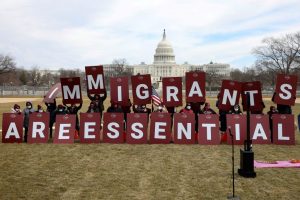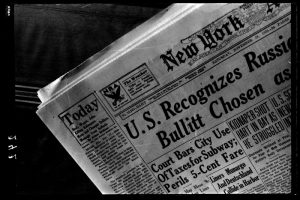Behind the old saying “In every crisis there is an opportunity,” there is an incontrovertible fact: extreme situations force us to have clear priorities and, above all, to act.
The Mexicans in Chicago know this very well. Called the “Political Capital of Mexicans Living in the United States” by a veteran diplomat from their own country, Chicago is the fifth largest Mexican city in the world (only surpassed by Mexico City, Guadalajara, Monterrey and Los Angeles). Unlike the others, Chicago was not born from Mesoamerican roots. Monumental city that dominates the American Midwest, in Chicago 20 percent of the population is of Mexican origin. Even the neighborhoods like Humboldt Park, that once were Boricuas, today are mostly Mexican.
“Chicago was created by immigrants, it is built by immigrants and it will have a great future thanks to its immigrants,” the all-powerful Richard M. Daley once pointed out during the 2006-2007 immigration reform demonstrations.
Together with Poles, Pakistanis and Irish, the Chicago Mexicans are, to put it plainly, the only real option for the American Midwest not to collapse, demographically speaking.
Like West Chicago – a neighboring city in Indiana – Chicago’s Mexicans are the engine of the local economy. Owners of more than half of the homes that have been bought since 2000, owners of the largest number of small businesses that have opened in the last two decades, Chicagoans make up a large community ranging from La Villita (the second most important commercial area, after the Magnificent Mile of Michigan Avenue), to Pilsen, Auroa, Waukegan and almost all Metro-Chicago regions that have had growth in the last half century.
Diverse in their Mexican political preferences, Mexicans from Chicago share a a powerful cultural identity, therefore, they are very united around the first principle that gives form to an authentic community: solidarity.
In the early years of this century, while the Mexican Foreign Ministry was selling to the world a supposedly high-level negotiation – the infamous “Enchilada Completa” – the employees of the Mexican consulate in Chicago did extra work to raise funds to anchor the legal costs of José Zapata’s case, a short, dark-skinned, non-English-speaking countryman who had been stripped of the right to parental authority by his two young girls, only because his condition as Mexican.
In Chicago, thanks in part to a small, but very strong, group of veteran activists from university Mexico in the 1960s, the Mexican community has maintained a deep sense of Mexican identity, as well as a very congruent anti Mexico), which has not prevented them from building bridges with their country’s diplomacy, when they have found in that group a minimum political sensitivity for not respecting their basic binational rights.
Nobody doubts that the future of Chicago, and to a large extent throughout the American Midwest, is in the hands of the children and grandchildren of those immigrants from Los Altos de Jalisco who became the backbone of the entire processed food industry in That region of the country.
The great mystery that remains alive, to the south of the “Great Wall” of Mr. Trump, is whether elite Mexico and its government will still not recognize the enormous value of those Mexican migrants who, for almost a century, have been able to win-over All with his work and his values - the heart of the same American society that Mr. Trump has used as his favorite flag to justify his client. If the alliance is consolidated, both in issues such as the FTA, and the human rights basic rights of Mexican-American families, the balance of American public opinion will lean in favor of the causes that remain on the right side of history.










